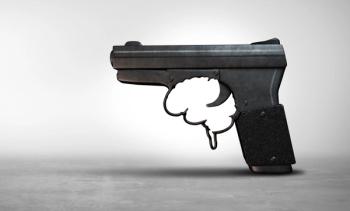
“My Life Today is Wonderful. I Believe that I Am Needed.”
Reflections from the Russo-Ukrainian war and the importance of being needed.
What gives people the courage to push on, even in the most untoward circumstances? Psychiatrist and psychoanalyst Victor Frankl, MD, PhD, broached this question in his best-selling book, Man’s Search for Meaning.1 A survivor of Auschwitz himself and the founder of “logotherapy,” Frankl suggested that some individuals survived the devastating conditions of concentration camps because they found meaning in their work or in their relationships. According to Frankl, those who lost that sense of meaning simply shriveled up and died, even before the Nazis sent them to preordained deaths.
However, a comedian-turned-politician expressed his sentiments on the subject more cogently. The current Ukrainian president summed up his philosophy in a single yet striking paragraph. During a press conference on March 3, 2022, President Volodymyr Zelensky pronounced that “My life today is wonderful. I believe that I am needed. That’s the most important sense of life: that you are needed—that you are not just an emptiness that breathes and walks and eats something.”2
Who among us would have guessed that Zelensky would be so optimistic, so appreciative, even so reflective at a time when he himself faces assassination threats, and when he literally watches his country go up in smoke—and when we, as bystanders, are inundated with footage of bombed-out buildings and images of mothers and children being murdered as they attempt to escape their war-torn homeland? Surely not me—yet his attitude started to make sense once I compared Zelensky’s reactions to Frankl’s observations, and when I reflected on the sense of mission that propelled so many medical students at a time when medicine was a “calling” rather than a “job.”
Zelensky did not aspire to find meaning in his own life, like Frankl and his entourage did. Rather, it appears that Zelensky has already identified what gives his life meaning, and it is the need to be needed and the opportunity to meet the needs of his people in any way available.
If we dig deep, we might find that many—if not most—physicians were also motivated by the need to be needed, so they acquired the ability to save lives, assuage pain, increase mobility, improve breathing, or whatever their specialty offers. Parents, in particular, are propelled by the need to be needed, and some fall into despair when their progeny no longer need them or reject the help they offer. Ex-military personnel also need to feel needed, which is why so many Americans jumped at the chance to join forces in Ukraine and to fight a just war that needed their hard-won skills from the past.
As psychiatrists, we routinely ask our depressed and demoralized patients why they will not act on impulses to hurt themselves or take their lives, even when their desire to remain alive has waned. We rightfully feel reassured when individuals say that they will never commit suicide because someone “needs” them, be it family, friends, or even a pet hamster (as one patient recently informed me during her appointment).
At this point in time, so many of our colleagues are at the verge of burnout. Highly trained health care professionals have been leaving their posts in greater numbers than ever before. Is it because of the pressures of COVID-19, or is it simply a parallel to the “Great Resignation” that impacts the workforce overall? Or is it because entering data in an electronic health record; “treating the data, not the patient”; prioritizing administrative rules and regulations; and circumventing managed care restrictions—and tiptoeing around prior authorizations—preempts patient care, and so does not make doctors feel needed by the very patients they purport to help?
Let me answer my own rhetorical question: We know for a fact that the burnout epidemic began well before the COVID-19 pandemic emerged. So much has been written about burnout that I will not belabor the point. On its website, the American Medical Association (AMA) identifies many contributors to doctors’ demoralization.3 Some sources recommend “better work-life balance” to beat burnout—but is that the answer? It is fairly clear that most of the soul-sapping factors listed on AMA’s website share one trait in common: They make medical practitioners feel unneeded. It is better to identify creative ways to feel needed again and to help our colleagues stay in the fold—and that aspiration in itself is a good way to feel needed.
Dr Packer is assistant clinical professor of psychiatry and behavioral sciences at Icahn School of Medicine at Mt Sinai, New York, NY.
References
1. Frankl V. Man’s Search for Meaning. Beacon Press; 1946.
2. Kramer AE.
3.
Newsletter
Receive trusted psychiatric news, expert analysis, and clinical insights — subscribe today to support your practice and your patients.







